Check out some books by your tutor Fiona Veitch Smith … (click on the book covers to find out more)
 This is the fourth installment in our free creative writing course. We have already looked at releasing your creativity, how to write a short story and writing from a point of view.
This is the fourth installment in our free creative writing course. We have already looked at releasing your creativity, how to write a short story and writing from a point of view.
This session we will look at how to bring your writing to life. We will focus on three basic principles that will help bring sparkle to your text:
Active vs passive writing
What is it that makes writing dynamic? Why do you feel energised by one text and bored to death by another? We all have the same vocabulary at our disposal (at last count there were over 600,000 words in the Oxford English Dictionary) but it is how we use them that differs.
Consider the following sentence:
The ball was thrown by John.
This is a passive sentence. To activate it bring the subject of the sentence (John) forward. Now we have:
John threw the ball
That’s better. The sentence has more energy, but it’s still a bit bland. Let’s consider choosing some more dynamic words. There is not much we can do with ‘John’ or ‘ball’ (unless we change it to spherical orb which would be overkill) but the verb ‘threw’ offers us more possibilities.
John tossed the ball – a casual act
John chucked the ball – an aggressive act
John propelled the ball – a deliberate act
John hurled the ball – a desperate act
John hoyed the ball – a forceful act taking place in the North East of England!
Exercise 11:
Take each of the above sentences and use them as an opening for the first paragraph of a story. How do the different verbs change the possibilities of the story?
Please note that there should be no need for an adverb (a word that describes the verb) as the verb itself should carry the meaning. For example, ‘John chucked the ball angrily’ is unneccesary as ‘chucked’ already contains an implication of anger. If you were to write ‘John threw the ball angrily / casually / clumsily ‘ I would tell you to find a verb that implied anger / casualness / clumsiness etc and ditch the adverb.
A word’s dynamism relates to the amount of communicated energy it contains. This can be fast or slow, violent or peaceful, harsh or gentle. Sometimes we would like to slow the reader down so that they can ponder the text. This, however, is no excuse for passive writing. A passage can be slow and active at the same time. Consider this passage from C.S. Lewis’ The Magician’s Nephew, the first book in the Narnia Chronicles:
The Lion was pacing to and fro about that empty land and singing his new song. It was softer and more lilting than the song by which he had called up the stars and the sun; a gentle, rippling music. And as he walked and sang, the valley grew green with grass. It spread out from the Lion like a pool. It ran up the sides of the little hills like a wave. In a few minutes it was creeping up the lower slopes of the distant mountains, making that young world every moment softer. The light wind could now be heard ruffling the grass.
Slow words: empty, singing, softer, lilting, gentle, rippling, green with grass, pool, little, wave, creeping, lower, distant, softer, light, ruffling etc …
Active words: pacing, new, called up, walked, grew, spread out, ran, making, wind etc …
Do you see that even a gentle passage like this can be full of energy? This is due to the choice of words and the use of senses which we will be looking at later.
Exercise 12:
Activate this sentence while still keeping the tranquility of the image:
The day was very sunny so the dog decided to lie down to sleep.
Using all your senses
Consider your five senses: Sight, Sound, Smell, Touch, Taste.
It is through these senses that we connect with our world. So by evoking one or more of the senses in a passage, your reader should connect with your fictional world. That way, reading moves beyond the intellect and into the body itself – it becomes a physical, ‘lived’ experience. This is called ‘somatasthesia’
Exercise 13:
Look at the following passage from ‘Blood Wolf’ by S.M. Stirling (The Year’s Best Science Fiction and Fantasy for Teens). What senses are evoked? How has the writer achieved it?
His back hit the rough brickwork of the wall, and he scrabbled upright, lashing out left and right with his fists. Another man’s fist thudded into the tough muscle of his belly, and he felt the night’s drinking and the long-ago meal leave in a rush of sour bile. That saved him; Arktorax stepped back with an exclamation of disgust, and Kreuha turned and turned again along the wall, as if he were rolling down a slope. His hand found the latch and he fell forward with a splash into a muddy street under a thin cold rain that shook him back to the edge of consciousness. He rose, plastered with a thin layer of earth and horsedung churned to gray slime, and turned to meet the rush from the tavern, trying to scream out the war-howl of his clan.
Did you notice that there are almost no visual images in this passage? True, we can ‘see’ the whole thing in our mind’s eye because of the power of the other senses, but Stirling does not actually describe what something looks like. Why do you think this is? Which is the dominant sense and why?
The key to this kind of writing is the judicious use of adjectives and dynamic verbs. But don’t overladen your text – like herbs and spices, a little goes a long way! Choose words that have layers of meaning. Consider, for example, the following sentence:
The axe sliced into the hard wood
vs
The axe slammed into the unyielding wood.
What layers of meaning are added by changing the verb and adjective?
The axe slammed viciously into the hard, unyielding wood, slicing and splintering the log into jagged shards
would be overkill.
Sensual writing also evokes emotion and associated memories. This is known as synaesthesia, whereby one sense is stimulated but manifests through another. For example, some people see music as colour (for them, a ‘blue’ note is more than just an expression). By using synaesthetic techniques you ‘encode’ a passage with layers of meaning. For example, whenever TS Elliot wrote of the smell of irises, he evoked the emotions associated with death and loss (there were irises at his mother’s funeral). The smell of irises, then, became a shorthand for the whole range of emotions and memories associated with the loss of a loved one.
Exercise 14:
Consider a piece of your own writing. Do you tend to overwrite or underwrite descriptive passages? Do you favour one sense over others? Which sense / senses do you neglect?
Rework the passage utilising as many of the senses as possible. Remember though, not every passage has to have all five senses in it.
Show Don’t Tell
The most basic mistake of novice writers is that they tell the reader what happened rather than showing them. Take this paragraph:
Blanche felt like she was going to lose control at any moment. She tried her hardest to hide it from the unwelcome guests who had dropped in for a cup of tea and a chat. Blanche wished they would just go away.
This is classic telling not showing. The narrator, in third person (see writing from a point of view), is telling us how he or she thinks Blanche is feeling. It would be better to show us:
Blanche steadied her hand as she flicked the kettle on, resisting the urge to toss boiling water over her guests. ‘Hope you don’t mind us dropping in like this,’ said the woman-from-two-doors-down.
‘Not at all,’ said Blanche through sugar-cube teeth.
Exercise 15:
Rewrite this paragraph so that it shows rather than tells:Bobby Brewster was bored. He couldn’t wait until the school bell rang. He struggled to hide it so Mr Jones, his teacher, became very cross.
Now find a piece of your own writing that tells but doesn’t show and rework it.
Next week’s creative writing course topic is about writing characters.
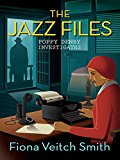
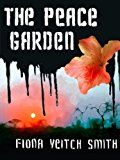
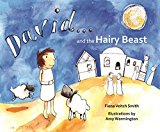
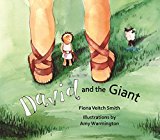
 Welcome to The Crafty Writer's free online creative writing course, presented by Fiona Veitch Smith, a freelance journalist, editor, author, playwright, screenwriter and writing teacher. I hope that you'll see a dramatic improvement in the quality of your writing as you work through this course.
Welcome to The Crafty Writer's free online creative writing course, presented by Fiona Veitch Smith, a freelance journalist, editor, author, playwright, screenwriter and writing teacher. I hope that you'll see a dramatic improvement in the quality of your writing as you work through this course. 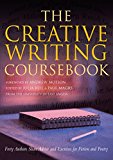
Bobby Brewester’s half-opened eyes oscillated from his dull desk to the dull clock adorning the dull classroom’s dull wall. His ears tingled in anticipation for the familiar ring that would signal an end to his agonizing tedium. “Only six more minutes to go,” he reminded himself.
Suddenly, a sharp exclamation.
“Bobby! If you’re suffering from narcolepsy, go see the nurse. Otherwise, pay attention for once, you good-for-nothing loafer!”
His perceptive teacher, Mr. Jones, had quickly snapped Bobby back to reality with his habitual scorn.
I learned some thing new-thanks!
What do you mean by showing, not telling?
The example given of Blanche and her sugar cube teeth will demonstrate this.
I had a lot of fun with this one, realizing that I do tend to be a ‘show’ story teller already, which was a great boost of confidence! But may be guilty of overkill every once in a while. Thanks!!
So glad it’s helped. And if writing isn’t fun (at least some of the time) what’s the point?
I’m enjoying this entire course but this lesson was particularly useful. The two passages shared were simply inspiring! Thank you!
Bobby Brewster sat idly at his desk, listening to the drone of his teacher as he fought to keep his eyes open. He shook his head and sat up, glancing at the clock. He sat quietly, counting the seconds until the bell finally rang as he gazed at the chalk board, trying desperately to focus his eyes. Next thing he knew, he felt something stabbing at the side of his head and his head shot up. He looked up at Mr. Jones, his face turning red. Mr. Jones had a knack for picking out people sleeping in his classes. “You know,” Mr. Jones said, his voice laced with contempt. “If you need sleep that much, I have a pretty comfortable couch in my office. Provided you don’t care about your grade. Or this class. Or your future.” Bobby cursed himself silently. He knew he’d made a mistake. He didn’t need Mr. Jones rubbing it in.
Bobby Brewster’s legs began to jump and twitch, he shifted this way and that in the hard, plastic chair trying in vain to get comfortable.Chin cupped in one hand his gaze shifted carefully towards the window and the green fields beyond. Please God he should hear the raucous din of the bell, signalling his freedom, soon.
Minutes ticked by, slowly. Unsuccessfully he tried to swallow yet another yawn. “Bobby Brewster!” bellowed Mr Jones “for heavens sake sit still and concentrate boy!”
This is a wonderful article/ lesson. Even though I’m just a role-player. I want to give the very best posts that I can.
Bobby’s Brewster’s mind throbbed as his blue eyes saw’t relief, wondering towards the monochrome clock. Face twisting in displeasure as only two minutes had passed. It was like time itself was against letting him go!! Resting his face in the palm of his hands, his chest shook with a huff. Cursing the creeping restlessness that over flowed from him. Muscles taunt as he kept trying to keep from shifting in his hard wooden chair. Attempting to keep his eagle eyed teacher, Mr. Jones from noticing. Cringing, as a loud scrap cut through his elders droning. Freezing, the boy’s eyes locked with Mr. Jones. The elder glowering as he approached Bobby’s desk with quick steps, ruler smacking down with a thud on Bobby’s desk.” Either you can pay attention now. Or you can stay after school to make up the lesson. Which shall it be?” Hissed Mr. Jones, displeasure laced like poison in his words.
*sought Sorry I have trouble sounding out words for spelling them.
Thank you, this was quite helpful. I had realized that my description was lacking depth, and was working to expand my descriptions to include other senses. These examples are helpful. I also found the suggestions for active verbs to be helpful.
Still working on the show don’t tell part. I have learned a lot about my writing though. So far this course is helping me see some of the errors that I have made in the past.
This is where I have a lot of trouble! I start out okay but then towards the end (of the paragraph) I start to kind of slide back to telling. I’m not sure why that happens really. It’s very frustrating, but I guess practice makes perfect!
Be kind to yourself, Beth. Yes, Practice does make perfect(ish).
I struggle with showing instead of telling. I get caught up and just getting the story on paper that I forget that good story telling requires subtle hints and indirect actions and phrases. I will work on this.
I am really enjoying this course! I am just starting out as a writer after finally allowing myself to have a go.
This course is helping me immensely as it is useful and informative.
‘Can anyone tell the answer to this formula’ says Mr. Jones as he looks around the class.
‘Bobby?’ Calls Mr. Jones.
And there was silence in the room
Bobby in his own world thinking about the fantasy game he was playing last night. ‘If only I could find a way to get the indispensable gun then I can beat Mr. Invisible.’
‘Bobby!’ Mr. Jones snapped
‘Yes Sir’ Bobby fretted
‘Do you know the answer to this formula?’
‘Uh uhm uh, I don’t think so Sir’.
‘Or is there something more important in that mind you want to share.’ Says Mr. Jones
‘No sir’
‘The next time you start daydreaming about who knows what, please first think about me reading the test results next week in front of the whole class and how embarrassed you’ll be when everyone knows that nothing resides in that head of yours.’ Scowled Mr. Jones angry and worried at how this boy so frequently wanders around to his own world.’
Do you understand?’ He concludes in a stern voice.
‘Yes sir’ Bobby says very embarrassed. Looking straight ahead of him with a strenuous look, trying his best to ignore the giggling he hears from his classmates.
Bobby’s eyes wandered from window to inside back and forth until they finally met the reproachful glance from Mr Jones
I know this is always a yool for creative writing, but I usually disagree. When I read, I like to get to the point and be told instead. I usually skip the parts that describe taste etc. It annoys me. It’s like I don’t care how the air taste, or what color the wood is. Just tell me what happened. I guess I was more of a reality or non fiction reader. But, I want to try this cause a personality tesy and interest inventory pointed me here.
This has been my favorite lesson yet! ????
So grateful I came across your course! I’m loving working through your daily lessons. This lesson showed me how to free my thoughts and how I can add more description and feeling to my writing. I have a lot of practice to do, and I am excited to see my progression.
Thank you!
Hi Sydney. That’s lovely to hear. Keep on writing!
Thank you so much for useful, practical tricks and tips. I can imagine the magic of writing, if we follow this lesson seriously.
You’re most welcome, Shazia. I hope you enjoy the course.
I’m so glad to be going through this course. I must say that I have been telling rather than showing. Thank you for the sample texts. The contributions of others have been helpful too!